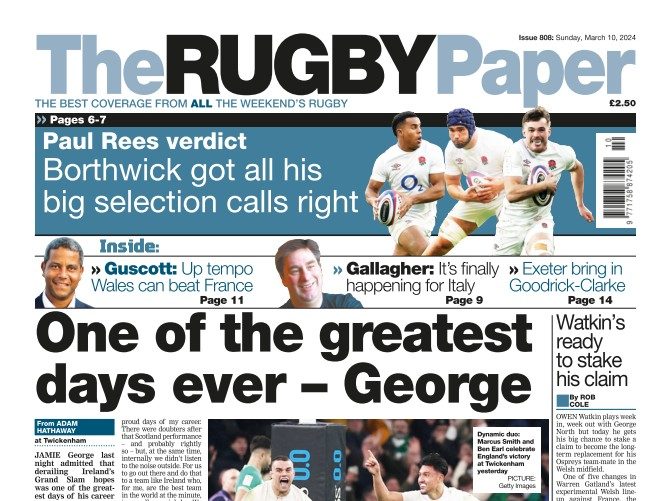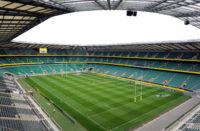In the annals of rugby league history, the Easter of 2004 stands out as a pivotal moment, marking the collision of athleticism, competition, and the burgeoning influence of the gambling industry. At the forefront of this watershed moment were two top-tier players, Sean Long and Martin Gleeson, who seized an unparalleled betting opportunity that would reverberate through the sport. Their gamble, albeit successful, threw the sport into disarray, prompting rule changes, debates about players' ties to the betting industry, and a reshaping of sponsorship policies.
Evolution of Rugby League's Stance on Gambling
The aftermath of the 2004 betting scandal prompted rugby league to reassess its relationship with the gambling industry. The revelation that players had bet against their team initiated a cascade of changes within the sport. Rule modifications, including alterations to squad announcements, sought to fortify the integrity of the game. The Rugby Football League (RFL) took a proactive stance, opening a hotline for players to anonymously disclose information about the scale of the gambling problem within the league.
As the years passed, rugby league transformed its sponsorship landscape. Some were sponsored by Betfred but not other operators like Yebo Casino for South African players. From shying away from potential controversies with online poker businesses to embracing bookmakers, the financial dynamics of the sport evolved. Betfred, spearheaded by Fred Done, emerged as a financial savior for the league, sponsoring not only domestic competitions but also extending its influence to the international stage, including becoming the main shirt sponsor for the England national side.
The Influence of Betfred on Rugby League
Betfred's dominance in rugby league sponsorship has become all-encompassing. From the Betfred Super League to Betfred Championship, Betfred League One, and even the Betfred Challenge Cup, the brand is omnipresent. This saturation extends beyond gender and ability divisions, with Betfred also holding the title sponsorship for the Women's Super League and the Betfred Wheelchair Super League. The result? A sport where fans, regardless of their location or preferred team, are constantly immersed in Betfred advertising, be it on pitch markings, corner flags, or televised broadcasts.
However, as rugby league fully embraces betting advertising, it does so at a juncture where the wider gambling landscape is under scrutiny. The UK government's recent review of gambling laws, driven by concerns over addiction and children's exposure, challenges the industry's modus operandi. It calls into question the balance between the financial lifeline provided by bookmakers like Betfred and the potential societal costs of normalizing gambling within the sport.
Rugby League's Dilemma: Image vs. Financial Support
The perennial challenge facing rugby league administrators is the delicate balancing act between creating a positive image for the sport and the undeniable need for financial support. Historically, rugby league enjoyed sponsorship from brands that aligned with its image as the sport of the industrial manual worker. Cigarette brands and northern breweries pumped millions into the game, fostering a connection with working-class communities. However, the contemporary landscape is different, with a single sponsor, Betfred, dominating every division and cup.
In contrast to other sports like Crystal Palace, which recently became the first Premier League club to remove a gambling sponsor, rugby league appears hesitant to be part of the discussion about the future of sports sponsorship. As legislative changes unfold globally, with Spain, Holland, and Australia reevaluating their stance on sports gambling, rugby league's alignment with Betfred raises questions about the sport's adaptability and willingness to navigate the changing tides of public sentiment.
Impact on Fans and Communities
The influence of Betfred sponsorship extends beyond the boundaries of the playing field. The financial backing Betfred provides to rugby league is undeniable, especially during challenging times like the COVID-19 pandemic. However, the question remains: how does this sponsorship impact the fans and communities that form the backbone of the sport? With a third of football supporters expressing reluctance to buy shirts adorned with gambling logos, it raises concerns about the disconnect between fan values and the sponsorship choices made by the sport's governing bodies.
As Crystal Palace and the FA distance themselves from gambling sponsors, rugby league supporters may wonder if their sport has backed the right horse. The absence of gambling sponsorship during the Euro's final was refreshing for many attendees, prompting contemplation about the potential long-term impact of such associations on the fan experience. The success of rugby league this autumn hinges on whether the sport can strike a delicate balance, attracting new audiences without alienating its loyal fan base.
Looking Ahead: Challenges and Opportunities
As the World Cup approaches, the challenges and opportunities for rugby league come into sharper focus. Upcoming changes in advertising regulations during the event will curtail certain types of betting adverts, highlighting a shift in societal attitudes toward gambling in sports. Rugby League faces the task of not only maintaining its financial stability but also addressing the ethical considerations associated with its exclusive alignment with Betfred.
Innovations in sports sponsorship, such as sustainable models that prioritize community engagement over corporate interests, may offer a way forward. While the financial backing of Betfred cannot be understated, the sport must remain vigilant in balancing short-term gains with long-term consequences. The future of rugby league lies not just in navigating the odds of financial viability but in fostering a sustainable and positive relationship with its fan base.
Striking a Balance in the Game
The sport is at a crossroads in the delicate dance between rugby league and the gambling business. While the Betfred sponsorship provides critical financial support, it raises ethical concerns about the effect of gambling in sports. As the UK government reconsiders gambling rules, rugby league must adapt to altering societal standards and fan expectations.
The 2004 betting scandal left an indelible mark on sports history, catalyzing change. The sport has undergone considerable changes, from amended rules to the introduction of Betfred as a prominent participant in rugby league sponsorship. As the sport navigates the difficulties of the modern gambling market, it must maintain its integrity while balancing financial needs with the expectations of its broad and passionate fan base.
In defining its future trajectory, rugby league can redefine its relationship with sponsors by experimenting with new models that value fan participation and community impact. The World Cup and beyond provide a blank canvas for the sport to create a new narrative that represents its dedication to both financial sustainability and the ideals that its followers hold dear. Striking this delicate balance will not be easy, but it is a necessary step toward assuring rugby league's vibrant and long-term future.
























